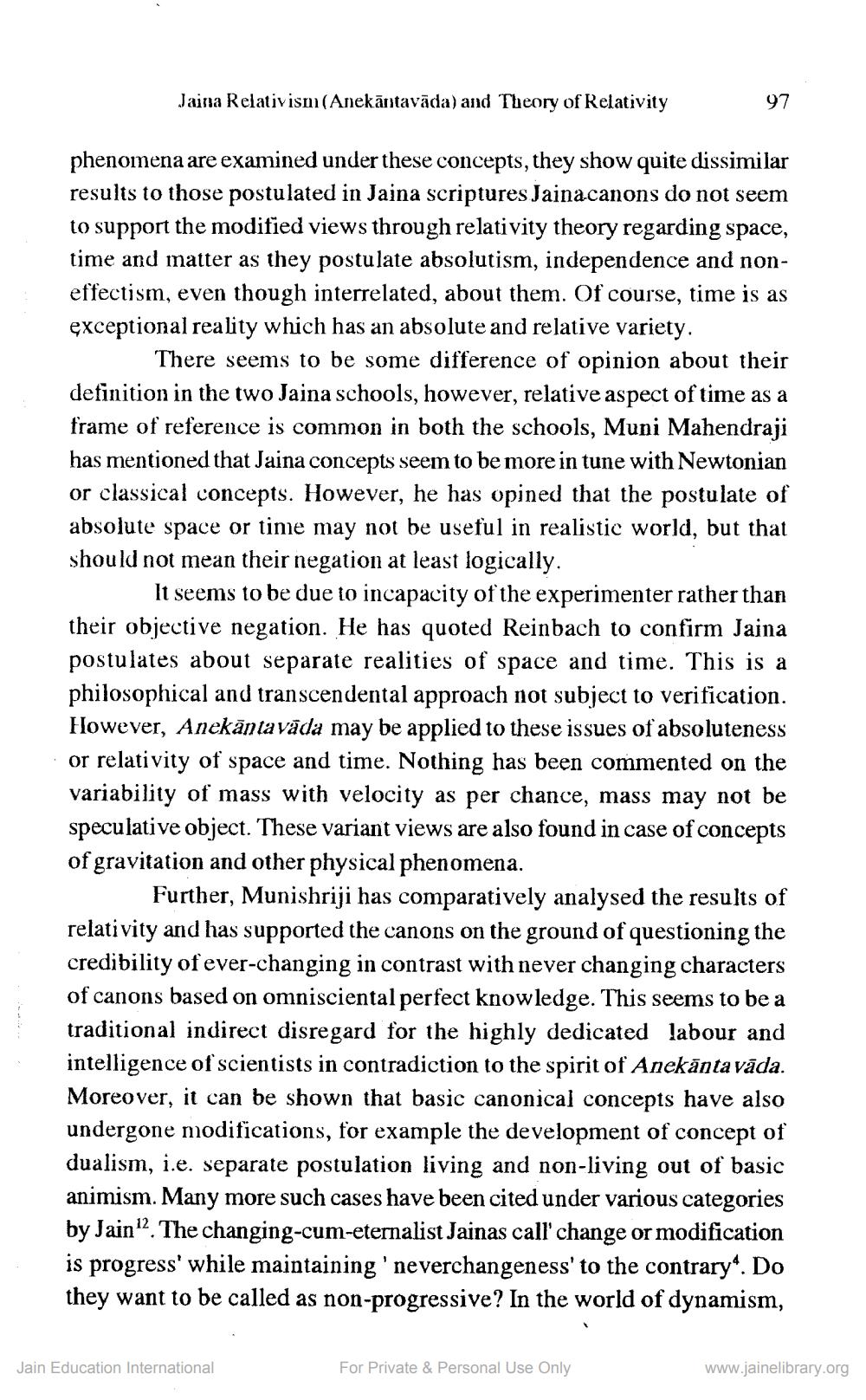________________
Jaina Relativism(Anekāntavāda) and Theory of Relativity
97
phenomena are examined under these concepts, they show quite dissimilar results to those postulated in Jaina scriptures Jainacanons do not seem to support the modified views through relativity theory regarding space, time and matter as they postulate absolutism, independence and noneffectism, even though interrelated, about them. Of course, time is as exceptional reality which has an absolute and relative variety.
There seems to be some difference of opinion about their definition in the two Jaina schools, however, relative aspect of time as a frame of reference is common in both the schools, Muni Mahendraji has mentioned that Jaina concepts seem to be more in tune with Newtonian or classical concepts. However, he has opined that the postulate of absolute space or time may not be useful in realistic world, but that should not mean their negation at least logically.
It seems to be due to incapacity of the experimenter rather than their objective negation. He has quoted Reinbach to confirm Jaina postulates about separate realities of space and time. This is a philosophical and transcendental approach not subject to verification. However, Anekantaväda may be applied to these issues of absoluteness or relativity of space and time. Nothing has been commented on the variability of mass with velocity as per chance, mass may not be speculative object. These variant views are also found in case of concepts of gravitation and other physical phenomena.
Further, Munishriji has comparatively analysed the results of relativity and has supported the canons on the ground of questioning the credibility of ever-changing in contrast with never changing characters of canons based on omnisciental perfect knowledge. This seems to be a traditional indirect disregard for the highly dedicated labour and intelligence of scientists in contradiction to the spirit of Anekānta vāda. Moreover, it can be shown that basic canonical concepts have also undergone modifications, for example the development of concept of dualism, i.e. separate postulation living and non-living out of basic animism. Many more such cases have been cited under various categories by Jain". The changing-cum-eternalist Jainas call' change or modification is progress' while maintaining 'neverchangeness' to the contrary. Do they want to be called as non-progressive? In the world of dynamism,
Jain Education International
For Private & Personal Use Only
www.jainelibrary.org




